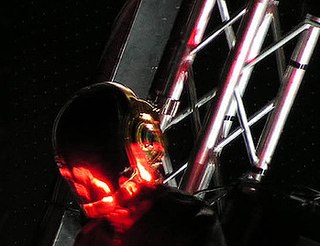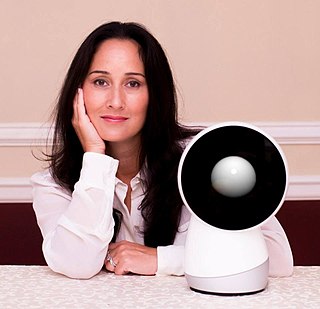A Quote by Rodney Brooks
So robots are good at very simple things like cleaning the floor, like doing a repetitive task. Our robots have a little tiny bit of common sense. Our robots know that if they've got something in their hand and they drop it, it's gone. They shouldn't go and try and put it down.
Related Quotes
So, where are the robots? We've been told for 40 years already that they're coming soon. Very soon they'll be doing everything for us. They'll be cooking, cleaning, buying things, shopping, building. But they aren't here. Meanwhile, we have illegal immigrants doing all the work, but we don't have any robots.
Back in the twentieth century, we thought that robots would have taken over by this time, and, in a way, they have. But robots as a race have proved disappointing. Instead of getting to boss around underlings made of steel and plastic with circuitry and blinking lights and tank treads, like Rosie the maid on The Jetsons, we humans have outfitted ourselves with robotic external organs. Our iPods dictate what we listen to next, gadgets in our cars tell us which way to go, and smartphones finish our sentences for us. We have become our own robots.
Until computers and robots make quantum advances, they basically remain adding machines: capable only of doing things in which all the variables are controlled and predictable. Robots are bad at pattern recognition and certainly at common sense. That's why computers can beat humans in chess but can't have even a basic conversation with a six-year-old.
There are lots of examples of routine, middle-skilled jobs that involve relatively structured tasks, and those are the jobs that are being eliminated the fastest. Those kinds of jobs are easier for our friends in the artificial intelligence community to design robots to handle them. They could be software robots; they could be physical robots.




































